Years ago, when we could still meet in the hundreds in small enclosed spaces, I was speaking to a Valve employee and brought up the topic of integrating Wine into Steam. I was met with something that I assume is taught to all of their employees during orientation - a sly, precise and knowing smile. When performed correctly it's a smile that offers up no information other than a confidence that there are good things to come. Back then Proton was very clearly something to be held close to the chest, not to be shouted about, at least not for a while.
Now, Proton is all anyone wants to talk about when Linux gaming is brought up. It comes with an argument just waiting to spring out at you - are you for or against? Are you perilously blind to the devastation caused by opening pandora's box, or are you a stifling traditionalist unwilling to let the platform evolve towards a bright future? I don't think either of those is a hill worth dying on, but I've heard these exchanges enough now that I can tell they're coming by the hairs on the back of my neck. It's not that these aren't important debates to have, it's just that the angles people take are so often unable to give the pragmatist room to breathe, let alone space to get down and dirty with the real issues at hand and how to solve them.
I think I now understand why the Proton cards were kept so hidden, sometimes it's not worth inciting an angry debate without letting something speak for itself first.
Today there's an undeniable truth that in a short window of time we've gained a wealth of games to play on Linux, but instead of the current dialogue focusing on finding common actions - how to capitalize on that potential, how to generate growth or even how to prevent too much damage being done, it too often ends up distracted in arguments that only focus on the past. These are fruitless. There's nothing to be gained but the ego boost of a hollow personal victory. "Is Proton good or bad for Linux gaming?" is a tired old question, that was thrown around in slightly different forms long before Proton even existed. There's a far more interesting topic: "Proton is here, so what next?". Finding answers to this, collectively, should be our urgent priority, because there's one thing seldom brought up in all these discussions: Proton's current success is the child of impeccable timing, and it may not last.
There are many factors to this, the first being the currently extended console generation. In 2019 almost all Windows games were still rendering with DirectX 11, a technology released 10 years prior. DirectX 12 was launched five years ago but we're only now seeing games start to truly use it. Part of Proton's success is founded on the fact that Vulkan is a generational leap above the tech current games are built on. It's not even simply DirectX 12, which is a mostly solved problem on Linux, the incoming generation is going to leapfrog that directly into entirely new technologies like Ray Tracing, DLSS and Nanite. You can see hints at the impact of the generational jump that's about to happen in NVIDIAs recent DLSS video, Epic's Unreal Engine 5 Reveal or the jaw-dropping Marbles RTX demo (shown below).

Direct Link
These new technologies may well have great compatibility with Vulkan and Proton, but not if Vulkan can't keep up - it may be that games start requiring them sooner as a baseline, and there could be significant unavoidable performance hits in a translation layer just like in the old days of DirectX to OpenGL. Because of this, Vulkan adoption and wide-spread use are vital to keeping Linux capable of cutting edge graphics tech. Supporting the use of Vulkan not only massively helps Proton, but it also helps Khronos stay at the cutting edge, making future native ports a much simpler prospect.
The potential success of Stadia could be a key factor in this - the more Google looks to push the boundaries of graphics hardware, the stronger Vulkan will need to be when put up against DirectX. Desktop usage of Vulkan is growing, with Vulkan renderers being added to games like Red Dead Redemption 2 and Rainbow Six Siege while Android use is on the rise as well, the success of both of these will be another factor in keeping Vulkan at the forefront. There was some doubt only a few years ago about whether Vulkan would end up as another OpenGL, an unwieldy, rarely-used-on-desktop API with dodgy driver support and lacking widespread expert knowledge, but I'm hearing those doubts less often these days. One situation that might play into all this is if Microsoft brought DirectX to Linux which, while farfetched, doesn't seem so insane anymore as it's coming to WSL, though the implications of a move like that are beyond anyone's fortune-telling abilities.
Another view on Proton's impeccable timing would be that Steam's strong market share on Windows for the last decade is only now hitting some serious competition. The Epic Games Store is the big challenger in the public eye, and while there's more to be done there (Epic integrating Proton would be special) the fact running it on Linux is a mostly solved problem, for now, has taken it out of focus a little. - we shouldn't get complacent. The second challenger that may be a far greater threat is the dirt-cheap and expansive Xbox Game Pass, which encourages a lack of game ownership that completely breaks the option of gamers taking their games with them when moving Linux (short of buying an Xbox). It also has the potential to finally transition more games to UWP, a format incompatible with Wine, and we recently heard that Microsoft is working on unifying their executable formats into something new, potentially causing even more problems.
For one flavour of pragmatist Stadia and other streaming services offer up a tangible step towards mitigating those issues by making your OS of choice irrelevant to the games you play. These services will give many Linux users direct access to the best AAA titles on their launch, and in Stadia's case, they're delivered using Linux virtually end-to-end. Xbox Game Streaming and Playstation Now may also unlock a huge library of console games without the need to invest in the set-top box. Streaming might not be your cup of tea or could be inaccessible due to your location, but it can't be ignored as part of the wider picture - a strong way to play games on PC without the need for a specific OS has clear benefits for Linux users.
Another simple counter is that it's becoming more and more obvious that Proton has far better historical compatibility with games than Windows does, and particularly better than Mac. This situation is likely to continue to improve, and it's a massive stealthy benefit for many gamers. Game preservation is a worthy shared goal to get behind, and we could look to establish Linux as the platform of choice for nostalgia seekers, tinkerers and modders for the digital age, in the same vein to that cabinet with a well preserved Nintendo 64 and a bunch of old games that some of us keep.
One last piece of the Proton timing puzzle is Anti-Cheat. We're nearing the end of a relatively long grace period where game developers shy away from going too invasive with protecting their IP. Most DRM and anti-tamper solutions are solvable in Wine, but Windows kernel-level anti-cheat has been around for years and is a much tougher challenge, bringing to a halt the hope of a quite a few games working on Linux. This level of invasive security isn't just a problem for Wine, it should be seen as a dangerous obstacle for all gamers, but it's a difficulty that's unlikely to go away in the short term as we see more AAA developers begin to rely on it, even though other methods have proven viable and are used in world-class esports. The problem is that invasive anti-cheat is now seeping outside of competitive multiplayer games - the latest victim is Doom Eternal, a game whose single-player campaign while writing this article became inaccessible on Proton due to the addition of Denuvo's new Anti Cheat.
However, it isn't all doom and gloom - broader campaigns against invasive anti-cheat are making small steps, Microsoft is granting users the ability to disable anti-cheat for single-player in the MCC, and most recently Denuvo Anti-Cheat is being removed again from Doom Eternal. In other good news, Valve is working with the developers of Easy Anti-Cheat, and Denuvo is working on out-of-the-box Proton support, but standing united with Windows gamers in setting a safer precedent for how companies handle these tools, regardless of Proton compatibility, is something we all should aim to do.
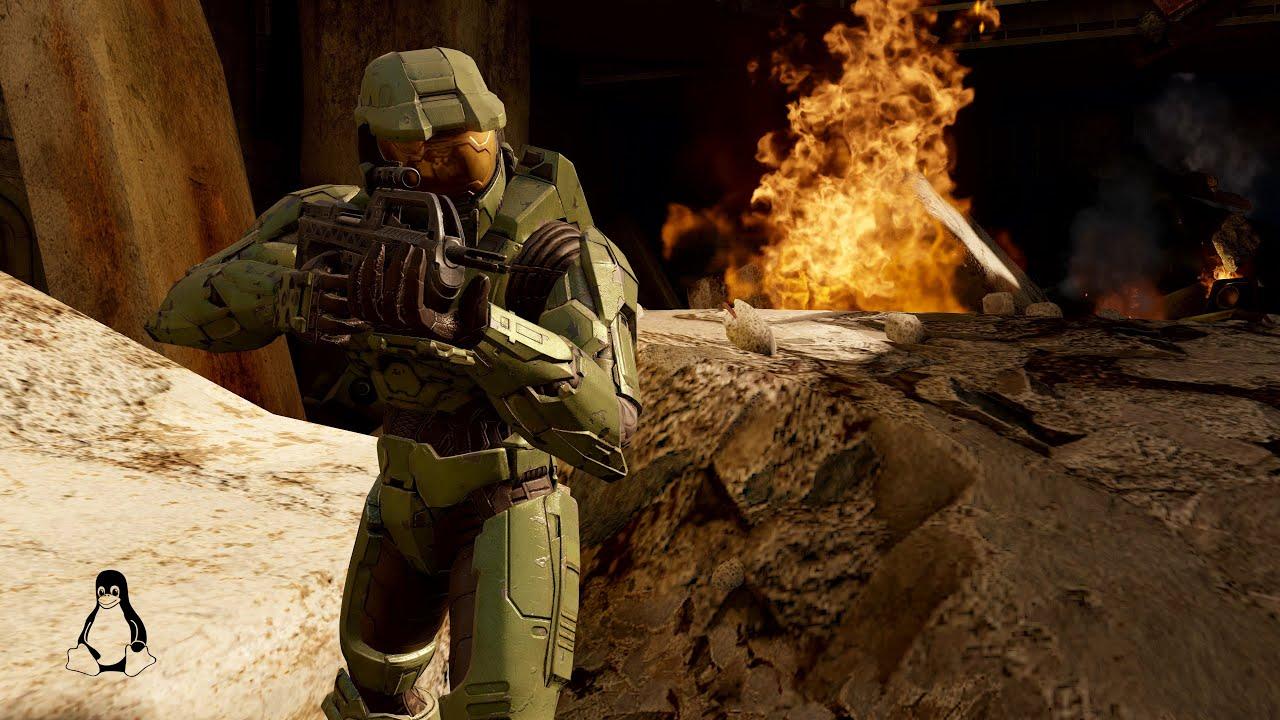
Direct Link
Proton's timing was its strength, but native ports are another story. It's probably fair to say that the number of ports has reduced over the last year, and you can't blame developers for taking the easy route when they find their game works flawlessly under Proton. However, the story in terms of native development is more positive. In the open-source world, Godot has a significant fresh round of funding with its 2020 showreel showing a notable upward trend in quality and quantity, while Blender made a huge leap with 2.80 last year. For the big-name engines, both Unity and Unreal's support for native game development is improving at a solid pace. Combining these with great progress in the Linux Distribution world for ease of use, installation and compatibility, as well as the multiple manufacturers now providing more high-quality OEM Linux laptops means that native development has never been easier, and keeping it strong helps to counter any damage Proton may do.
It would be easy to have been pessimistic here, but I hope I've shown there's a fair amount optimism just waiting to be had once everything is weighed up. Proton may have come with a strong tailwind, but there are a plethora of other factors at play to help keep Linux gaming fresh. If there's one action to be taken here it's not to stick all of our eggs in one basket - we have to stop acting like Proton is the only choice on the table, that's a massive distraction pulling us away from coming together and solving this puzzle collectively and co-operatively. If we do that right, then next time someone brings up Proton and Linux gaming we can offer them up that same knowing smile, knowing that the future should speak for itself.
Of course that's not going to work well and it is not working well. FOSS system needs FOSS games that are developed according to its rules and can be patched as the system evolves. Alternatively, FOSS system needs an "emulator" for a more stable environment, which can be adapted so users can play the same "frozen" images of console or Windows games while the underlying system changes under them.
Asking for more native closed-source, binary only, "frozen" Linux games is asking for trouble. Why? They will quickly bit rot in the ever-evolving Linux environment. If you have a closed source game that was released in 2010 for Windows and can be played via Proton now in 2020, chances are, you'll be able to play it in 2030. Can we say that about native Linux games released in say 2012 with the Humble Bundle? FWIW Valve recognizes that and started working on its own containerization system ("pressure-vessel"). Which, if it works, is going to be a solution for Steam-distributed games only, not for any random native Linux game...
EDIT: this is not to say that Windows doesn't change. But Microsoft is taking great care to not disrupt the games with its changes, recognizing the value of its ecosystem. Linux, in contrast, is developed mostly not for the games, and the major distro vendors often don't care enough about them (even Ubuntu, as recent attempt to remove 32-bit support showed). Moreover, it can be said that running closed-source binaries is an explicit non-goal for many distros, something that they tolerate on pragmatic grounds, but do not wish to endorse (understandably), because it undermines the FOSS principles and also security (you may have no concerns about running someone's closed source binary you just downloaded from the web, but for majority of non-gaming Linux users this is a big security risk).
Last edited by RCL on 25 May 2020 at 6:43 am UTC
By design, there are very few programs that can be run on GNU Linux and only GNU Linux. That includes Games. A thing that would have driven mass adoption, could have been if a single-player Half Life 3 non-VR were released as a Linux exclusive. Valve are under no obligation to create a Windows build and a vote of confidence would have been to release, HL3 as a Linux exclusive. It won't happen, but mainly because the mass adoption of Linux and control over a platform that you can't lock-in, doesn't compensate for the lost sales that they would have had. It has nothing to do with Exclusives allegedly being incompatible with FOSS (they are the key part of CopyLeft, and by design the proper GPLv3 is exclusive to FOSS). In fact, we don't inspire much confidence to have them delay the launch of HL:Alyx until they have a working build for Linux.
Another reason to switch would have been privacy and security. Unfortunately, it almost never is a factor in people's minds. You can't make it one, because preaching doesn't work. You can convert a small number of people, but not more than that.
Viruses create a pressure to switch to Linux, but not as much as I hoped. People don't care about viruses. Some don't care enough to use a mitigation like Windows defender that they already have! Much less spend time and effort to get away from them. The only way this pressure gets stronger, is if Microsoft keeps on making blunders and creating security holes, that cause ransomware outbreaks. Otherwise, why bother?
The abundance of Professionally monopolistic software that doesn't and will not support GNU+Linux because of catch 22. That's a strong pressure and a dealbreaker for switching away from Linux to Windows. It's sometimes enough to make people switch away from Mac OS, which has way more things going for it than Linux.
Community fragmentation. No! I'm not referring to people writing weekend projects like an app to keep track of recipes. Nor am I referring to the overabundance of Desktop Environments. I'm referring to the fact that if you search for Linux.org, and ask to download, you'd be taken to a wall of text with no descriptions. If I'm totally honest, I'd just prune the list down to Ubuntu, Arch and parabola, clearly stating that Ubuntu's the gateway drug, Arch is the hard stuff, and Parabola is the hardcore fanatic dosage. Sadly, far too many distress are pushing their own agendas on Linux.org, to remove them from consideration. It wouldn't be fair, too. I personally like Gentoo.
Lack of standardisation. What is the de-factor standard VoIP communication protocol for Linux? Anyone? Mac OS - FaceTime, Windows - Skype. Everything that is standard came from Unix and no newer standards are better. Wayland is supposed to be one new standard, and its support is abysmal. Office Suite? Apple - Keynote, Pages and Cells, Windows - Word, PowerPoint and Excel. Linux? Well we have a zoo. Thankfully they all speak the same language. Unfortunately instead of speaking it like Americans, Australians and Brits, they speak it more like the Aztecs, the Russians and the Japanese...
The User experience and Desktop Bling are a good selling point. Just go to UnixPorn and you'll see many compelling reasons to switch to Linux. But... that's the UI, not the UX. The UX is: I created my coursework in FreeCad instead of AutoCad, and got an F, because my project Supervisor couldn't open it. It's that I'm at a command prompt and instead of using the familiar apt install, instead I have to use paceman -S. It's fine, it's easier to type, but I would install by default a wrapper script that dynamically resolved what you want to happen and told you what the command is. It has to be there by default!!! We lack these common interfaces that people need to rely on, if they want to eventually stop thinking and get doing. The flatpak is a major step in the right direction and the fact that RedHat is forcing it on everybody is actually a good thing. because then I have a reliable way of making things work cross platform. If only it were also, you know... GOOD.
The only real advantages, like technical superiority the security are sadly the things that are the toughest to sell. Until we fix this, Linux will always be at the mercy of Microsofts and the Googles. If we want to change adoption we need a Killer App. And unfortunately, every killer app spot is already taken...
Quoting: appetrosyanI would like to add that not all games are created equal. Some of them, like Alien: Isolation are installed, run and completed several times over. Right now Linux is a hard sell for en-mass installation because, as much-better-poets-than-me have remarked, we have no compelling reason to have people switch over and there are barriers. Proton and DXVK reduce the pressure to switch away from Linux but they don't create pressure to switch to it.First of all, I agree on many if not all of your points. But I see it a little differently. Has there been ever a time the last decade where Linux gaming has been so effortless as it is now? I've not been around as long as you fellas but I like to think I know. And I don't believe it has.
By design, there are very few programs that can be run on GNU Linux and only GNU Linux. That includes Games. A thing that would have driven mass adoption, could have been if a single-player Half Life 3 non-VR were released as a Linux exclusive. Valve are under no obligation to create a Windows build and a vote of confidence would have been to release, HL3 as a Linux exclusive. It won't happen, but mainly because the mass adoption of Linux and control over a platform that you can't lock-in, doesn't compensate for the lost sales that they would have had. It has nothing to do with Exclusives allegedly being incompatible with FOSS (they are the key part of CopyLeft, and by design the proper GPLv3 is exclusive to FOSS). In fact, we don't inspire much confidence to have them delay the launch of HL:Alyx until they have a working build for Linux.
Another reason to switch would have been privacy and security. Unfortunately, it almost never is a factor in people's minds. You can't make it one, because preaching doesn't work. You can convert a small number of people, but not more than that.
Viruses create a pressure to switch to Linux, but not as much as I hoped. People don't care about viruses. Some don't care enough to use a mitigation like Windows defender that they already have! Much less spend time and effort to get away from them. The only way this pressure gets stronger, is if Microsoft keeps on making blunders and creating security holes, that cause ransomware outbreaks. Otherwise, why bother?
The abundance of Professionally monopolistic software that doesn't and will not support GNU+Linux because of catch 22. That's a strong pressure and a dealbreaker for switching away from Linux to Windows. It's sometimes enough to make people switch away from Mac OS, which has way more things going for it than Linux.
Community fragmentation. No! I'm not referring to people writing weekend projects like an app to keep track of recipes. Nor am I referring to the overabundance of Desktop Environments. I'm referring to the fact that if you search for Linux.org, and ask to download, you'd be taken to a wall of text with no descriptions. If I'm totally honest, I'd just prune the list down to Ubuntu, Arch and parabola, clearly stating that Ubuntu's the gateway drug, Arch is the hard stuff, and Parabola is the hardcore fanatic dosage. Sadly, far too many distress are pushing their own agendas on Linux.org, to remove them from consideration. It wouldn't be fair, too. I personally like Gentoo.
Lack of standardisation. What is the de-factor standard VoIP communication protocol for Linux? Anyone? Mac OS - FaceTime, Windows - Skype. Everything that is standard came from Unix and no newer standards are better. Wayland is supposed to be one new standard, and its support is abysmal. Office Suite? Apple - Keynote, Pages and Cells, Windows - Word, PowerPoint and Excel. Linux? Well we have a zoo. Thankfully they all speak the same language. Unfortunately instead of speaking it like Americans, Australians and Brits, they speak it more like the Aztecs, the Russians and the Japanese...
The User experience and Desktop Bling are a good selling point. Just go to UnixPorn and you'll see many compelling reasons to switch to Linux. But... that's the UI, not the UX. The UX is: I created my coursework in FreeCad instead of AutoCad, and got an F, because my project Supervisor couldn't open it. It's that I'm at a command prompt and instead of using the familiar apt install, instead I have to use paceman -S. It's fine, it's easier to type, but I would install by default a wrapper script that dynamically resolved what you want to happen and told you what the command is. It has to be there by default!!! We lack these common interfaces that people need to rely on, if they want to eventually stop thinking and get doing. The flatpak is a major step in the right direction and the fact that RedHat is forcing it on everybody is actually a good thing. because then I have a reliable way of making things work cross platform. If only it were also, you know... GOOD.
The only real advantages, like technical superiority the security are sadly the things that are the toughest to sell. Until we fix this, Linux will always be at the mercy of Microsofts and the Googles. If we want to change adoption we need a Killer App. And unfortunately, every killer app spot is already taken...
I think the barriers to gaming is more significant issue than incentives for switching to Linux. The platform is more secure and is free (modding, privacy, customization). If anticheat issue is 100% resolved, I believe it will propel Linux above one percent easily, perhaps even reach two percent with time. With that many users the platform will have more buzz than ever before. This buzz will spread awareness about the platform. Perhaps a relatively famous streamer or Youtuber switches to Linux. Then that person's 100K+ viewers will be exposed to his or her desktop. Maybe they think it looks super cool, and then search and find out it's Linux and you can customize the OS. From there the ball will roll more.
It's undeniable that Linux needs something to make it be used far more than two percent. But if there is one thing that has been a WIP ever since I switched to Linux it has been gaming. First and foremost when it comes to major games (AAA). Linux already has decent if not great apps. Mumble, OBS, SimpleScreenRecorder, MangoHUD, Krita, GIMP, Blender, Godot etc. It's not perfect and it doesn't cover ever single person's use case, but it has been a good experience for me. And I believe for gamers it can provide a better experience when Proton is at it's peak.
It's also important to note that the Windows 10 of today is not the same of earl times. Windows 10, from what I've gleaned, is better than it was previously. Improvements on the platform will make it more difficult to persuade people to switch to Linux. However, if the barrier to gaming is basically non existant on Linux every time Microsoft mistreats their users there will be a opportunity for Linux to siphon users away. To illustrate, imagine how many users Linux would have gained with a complete Proton (anticheat and VK3D) back when Windows 10 was launched with all of it's issues. Now it's difficult. Interoperatibility of Xbox and Windows 10, Game Pass, XCloud make it so. And the reason I bring this up is that it seems that Linux is at a turning point and that Microsoft is as aware of it as us users are.
Valve released their latest games on Linux and are proponents of Vulkan. There has also been [news about Steam Cloud](https://twitter.com/thexpaw/status/1264913761401520131), and it wouldn't be crazy to assume that will likely work on Linux too. So it seems the issue of being able to play major games on Linux will be resolved.
Last edited by Linuxwarper on 26 May 2020 at 12:04 am UTC
True is that I always hated Windows for it's lack or privacy and security and I know I'm the minority in that case, as I notice whenever i bring those topics up and get the same redundant/stupid answers like "Well, i got nothing to hide anyway" etc.
One of the main problems I see with the lack of widespread linux adoption is so many companies being locked into windows and microsoft's office suite or other windows-only programs like adobe for instance as well as that the "common person" as in not really tech-savy, often don't know that there ARE alternatives. Maybe they know about MacOs, if at all.
I recently brought my mother over to Linux Mint for her work-related stuff - and thinking about if I hadn't done the switch myself and told her about it, she would still be complaining about how shitty Windows 10 is (aka forced updates during Webinars and all that fun), because she wouldn't know that there was a viable alternative and Desktop Linux in many aspects has become viable for the common user. (as in browsing and light office-like work)
Gaming for me was always what kept me using Windows and I hated that situation (as already stated) and with every blunder MS does, as they seem to not have any QA for their operating system by the looks of past updates, we can get minor adoption with tools like Proton and the likes.
Still. What we need is a big player supporting the platform.
Valve is kinda doing that, which i commend them for but the reason is fairly obvious:
They're afraid of Microsoft trying to take over the gaming market as their marketshare on windows is already that big and this is exactly what we're seeing currently:
MS pushing Game Pass and UWP trying to lock-in the market on their platform.
If Valve doesn't push Linux adoption harder, we might see this end up happening: That gaming will end up (mostly) being bound to windows with games being locked into the windows store itself or maybe steam even being forced to pay some kind of share. (as in MS trying to create a more google playstore like platform)
I really hope I'm reading this whole situation wrong.
Last edited by Sonata on 28 May 2020 at 11:20 pm UTC
Quoting: SonataWasn't sure if I was gonna post or not as someone who has come to Linux somewhat recently (now that i think of it, it's almost a year now o.O) after randomly stumbling about how much easier Valve made gaming on this wonderful platform by integrating Proton and realising that most my games actually work.That's pretty much exactly how I read it. It's not because "Microsoft is evil, they're satan!" it's just basic common sense, all companies that control a platform want a more locked down platform, because that makes them more money. If Valve didn't exist and Microsoft had free reign over the PC gaming market, they would absolutely lock it down as tight as they can to eliminate any possibility of Windows games spreading to other OSes. They have shareholders to please, profits to make, and that's how you make money.
True is that I always hated Windows for it's lack or privacy and security and I know I'm the minority in that case, as I notice whenever i bring those topics up and get the same redundant/stupid answers like "Well, i got nothing to hide anyway" etc.
One of the main problems I see with the lack of widespread linux adoption is so many companies being locked into windows and microsoft's office suite or other windows-only programs like adobe for instance as well as that the "common person" as in not really tech-savy, often don't know that there ARE alternatives. Maybe they know about MacOs, if at all.
I recently brought my mother over to Linux Mint for her work-related stuff - and thinking about if I hadn't done the switch myself and told her about it, she would still be complaining about how shitty Windows 10 is (aka forced updates during Webinars and all that fun), because she wouldn't know that there was a viable alternative and Desktop Linux in many aspects has become viable for the common user. (as in browsing and light office-like work)
Gaming for me was always what kept me using Windows and I hated that situation (as already stated) and with every blunder MS does, as they seem to not have any QA for their operating system by the looks of past updates, we can get minor adoption with tools like Proton and the likes.
Still. What we need is a big player supporting the platform.
Valve is kinda doing that, which i commend them for but the reason is fairly obvious:
They're afraid of Microsoft trying to take over the gaming market as their marketshare on windows is already that big and this is exactly what we're seeing currently:
MS pushing Game Pass and UWP trying to lock-in the market on their platform.
If Valve doesn't push Linux adoption harder, we might see this end up happening: That gaming will end up (mostly) being bound to windows with games being locked into the windows store itself or maybe steam even being forced to pay some kind of share. (as in MS trying to create a more google playstore like platform)
I really hope I'm reading this whole situation wrong.
Valve is no angel, they want to make money too, but in this case, I think Valve's interests so closely align with ours and with 'software freedom' in general, that Valve is without a doubt our best friend right now. So I want them to succeed, because what works for Valve right now, works VERY well for us.
That is, there are not a significant number of people who begin to adopt a computer operating system because of the games available on it. Instead, the more people that adopt a computer operating system overall, the more that game development for that platform increases.
If games led the way to computer operating system / computer platform adoption, it would have been the Commodore Amiga (it originally had the best games and graphics performance) rather than the IBM PC that began to dominate by the end of the 1980s. It's true that the dynamics of the market have changed some since then, but not that much. If we see more games on Linux, it will be because there are more Linux users rather than the other way around.
Last edited by CFWhitman on 10 Apr 2021 at 7:18 am UTC
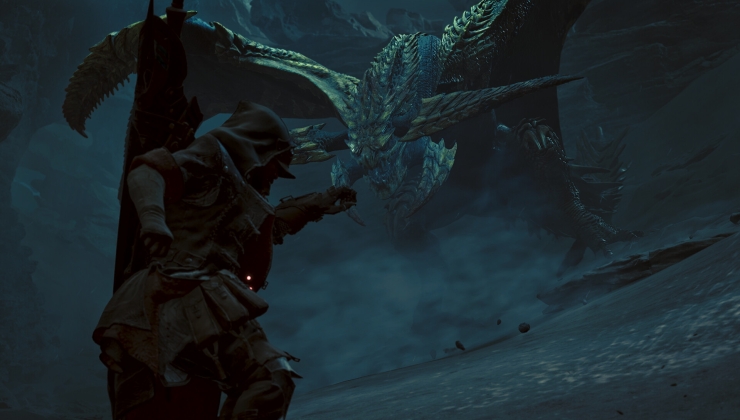
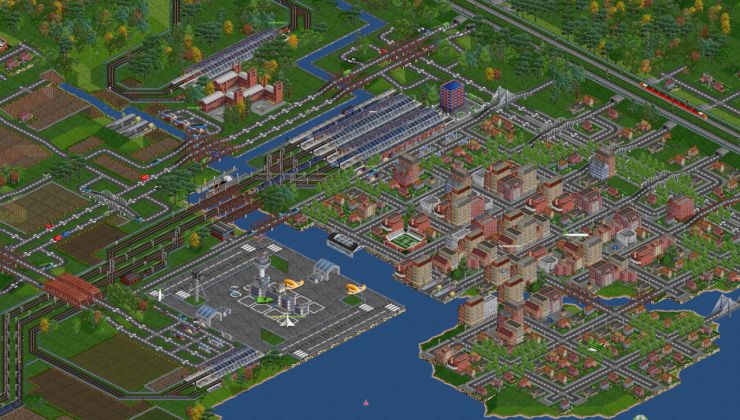
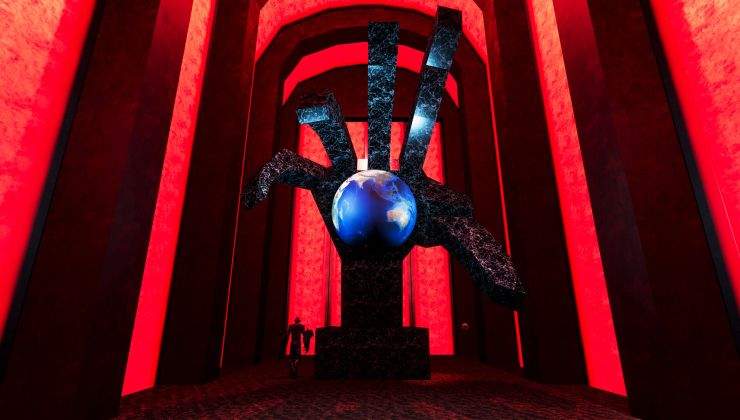
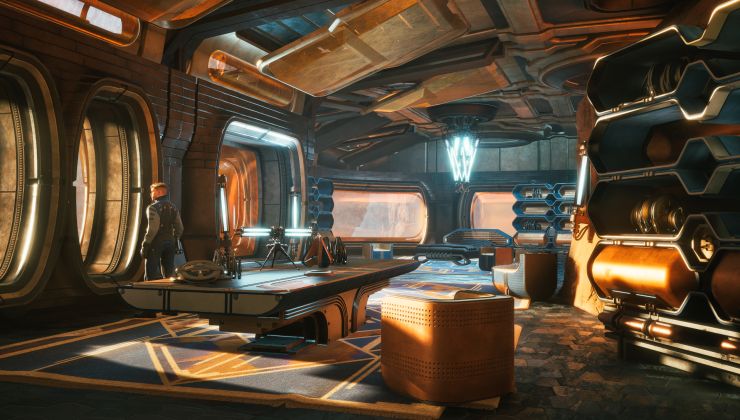




 How to setup OpenMW for modern Morrowind on Linux / SteamOS and Steam Deck
How to setup OpenMW for modern Morrowind on Linux / SteamOS and Steam Deck How to install Hollow Knight: Silksong mods on Linux, SteamOS and Steam Deck
How to install Hollow Knight: Silksong mods on Linux, SteamOS and Steam Deck